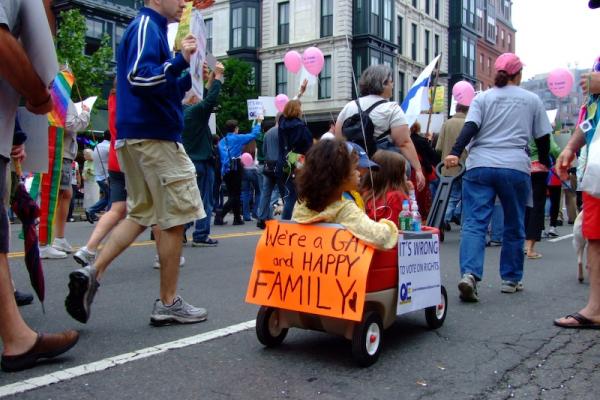Failure to provide equal rights for LGBT people doesn’t just hurt those who are gay or lesbian, it also hurts the nearly 2 million children who now live in LGBT households.
Contrary to many stereotypes, children living in LGBT households are 50 percent more likely to live in poverty than those living in heterosexual households. Societal prejudice and discriminatory policies both have something to do with it. A recent report sponsored by the Movement Advancement Project, Family Equality Council and the Center for American Progress, explains why.
States have a patchwork of different laws and definitions for who can be legally recognized as a parent or guardian of a child. As a result, there are children who aren’t covered by their parents' health insurance, children who ineligible for survivor benefits from a parent’s social security, and parents who are not able to take advantage of child tax credits.
All of these factors can contribute to hardships for children living in LGBT households. We have a broken foster care system that often fails to provide a loving home or stable environment that children need to thrive. Legal roadblocks and discriminatory policies discourage other well-qualified LGBT couples from becoming adoptive parents.
Some Christians might argue against fixing these inequities based in a belief that there is a moral distinction between heterosexual couples and gay and lesbian couples. This argument falls flat. It is akin to arguing that anyone who is divorced or had a child out of wedlock should be systematically discriminated against because of moral concerns with their relationships.
In practice, it is punishing children for the perceived moral failings of their parents.
In addition, it is important to consider that the choice is rarely between whether or not a child is raised by loving heterosexual parents or a home with same sex parents. It is often the choice between bouncing around in a broken foster care system or growing up with loving same sex parents.
Right now, there are a lot of adults fighting about sexuality. No matter where you land on those questions, we should make sure our public policy decisions don’t penalize kids.
Got something to say about what you're reading? We value your feedback!
